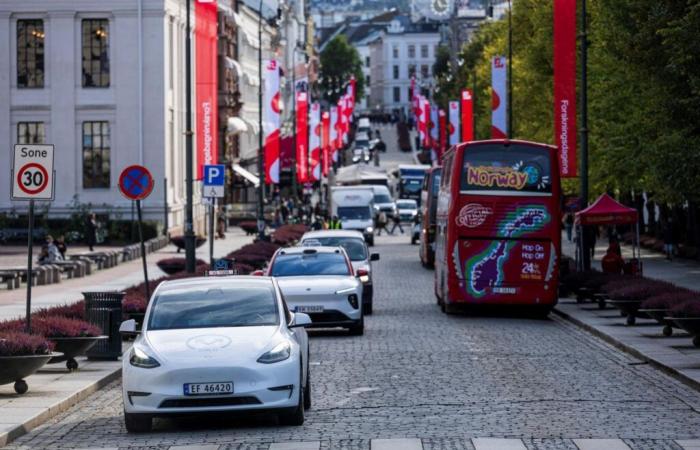Electric car news
Norway is establishing itself as the world reference in terms of the transition to electric mobility. With 88.9% of sales of new 100% electric cars in 2024, the Scandinavian country shatters its own records and demonstrates that a society can massively adopt this technology. This spectacular transformation is the result of an ambitious national strategy, combining financial incentives and changing mentalities.
An automobile market revolutionized by electricity
The Norwegian automotive landscape has changed radically in just a few years. Sales of thermal vehicles collapse to only 3.1% of the market, including 2.3% for diesel and 0.8% for gasoline. Plug-in hybrids represent 2.7% of sales, while classic hybrids capture 5.3% of the market. This distribution reflects a profound transformation in consumption habits.
Charging infrastructure: rapid and efficient adaptation
The charging network is adapting to this electrical revolution. Circle K, leader in service stations in Norway, announces a major transformation:
- Balancing planned within 3 years between charging points and fuel pumps
- Gradual reduction in fuel pumps in favor of electric terminals
- Adaptation of in-station services to 20-30 minute recharge time
The paradox of tourist rentals
A stark contrast appears in the rental sector. Rental companies maintain a significant thermal fleet to meet the demands of international tourists. Ulf Tore Hekneby, director of Harald A. Moeller, the country’s leading automobile importer, points out that foreign visitors remain hesitant about electric vehicles. This situation is reminiscent of the experience of Hertz in the United States, which had to review its electrification strategy in the face of reluctance from certain customers.
The changing vehicle fleet
The transformation of the Norwegian vehicle fleet is accelerating. End of 2024, 28.6% of vehicles in circulation are electricexceeding for the first time the proportion of gasoline cars. Diesel temporarily retains its first place with around a third of the fleet, but this domination is quickly eroding in the face of the progression of battery vehicles.
A successful transition without legal constraints
Norway is carrying out this transformation without a formal ban on thermal engines. The country has created an environment favorable to electric vehicles thanks to appropriate taxation: high taxation of thermal vehicles and substantial advantages for electric vehicles. This approach worked so well that even after incentives were reduced, the momentum toward electric continued. Car manufacturers are adapting their strategy accordingly, some even withdrawing their thermal models from the Norwegian market in the face of volumes that have become insignificant.
The goal of eliminating sales of new thermal vehicles by 2025 now seems within reach. This transformation demonstrates that a society can quickly adopt electric mobility when the economic and infrastructural conditions are met.
Written by Alexandra Dujonc
After studying electrical engineering, I worked on research and development projects aimed at improving the charging capacity of electric cars, which I made my specialty! I put my in-depth knowledge on the subject of electric charging at your disposal.
React to the article
Canada
Business







